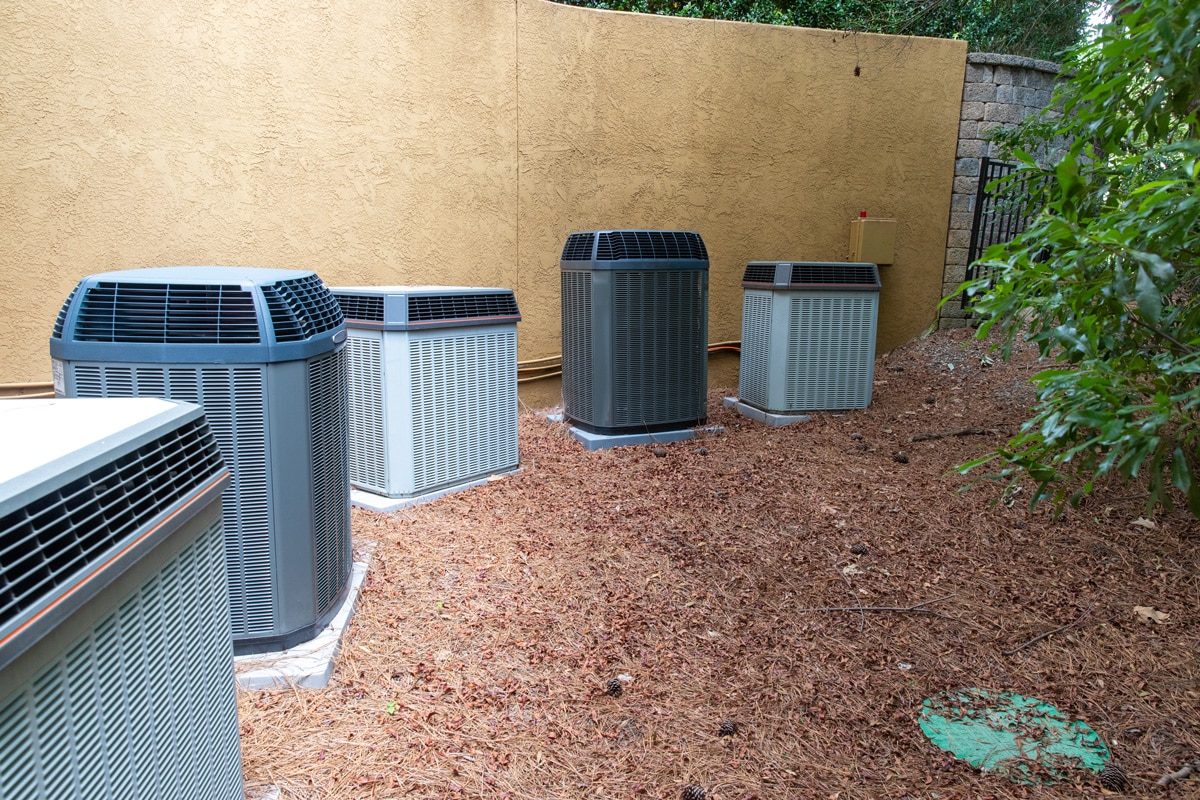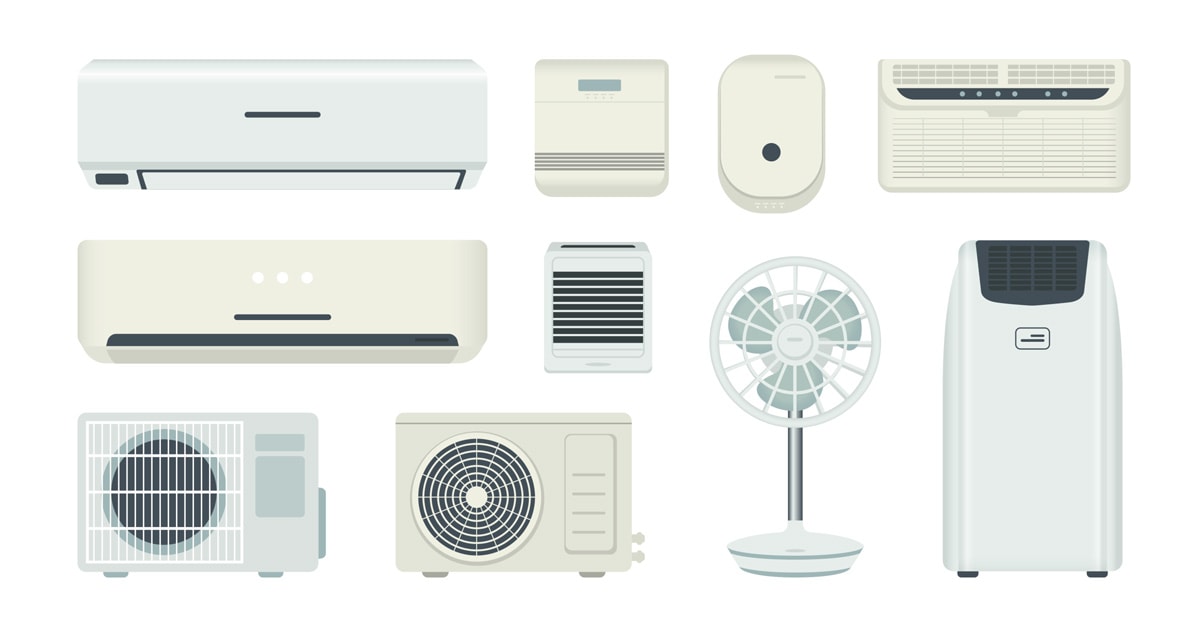Wondering if all AC units need to be outside or if there are portable air conditioning options without a hose or window access required? These are excellent questions. We've done the research to answer them.
Determining where to put your air conditioner depends on which type you own. Central air and window air conditioners must have access to the outdoors to vent air properly. Otherwise, small mobile AC units don't require ducts or vents to operate.
Are you ready to learn more about air conditioning units and which ones must be outdoors? Or does leaving the auto fan setting on help with air circulation? We hope you continue reading our post.
HVACseer has researched this topic and has a lot of helpful information to share!
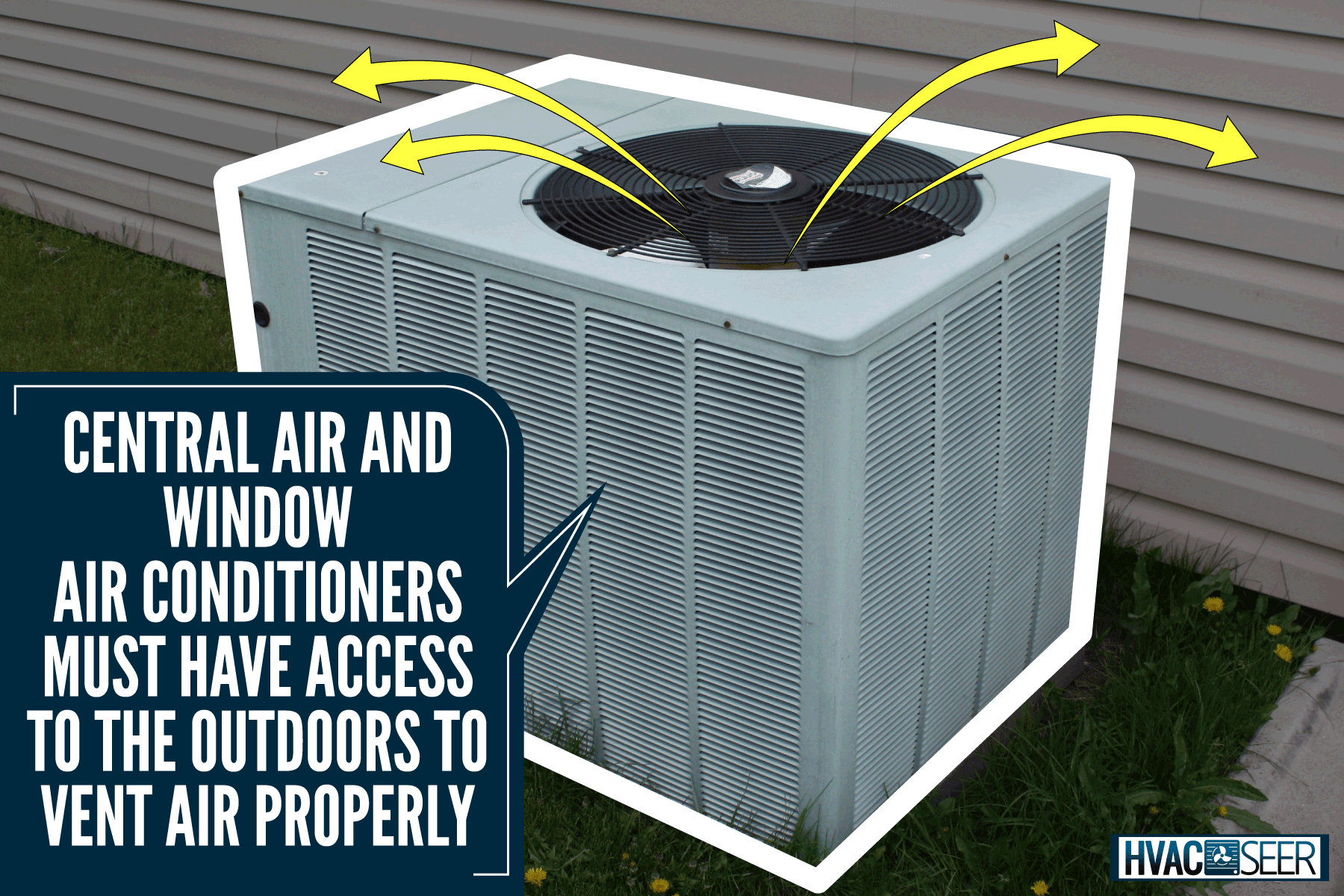
Do Air Conditioners Need To Be Outside?
Air conditioners are critical appliances whether you live in an apartment, condo, or house. You can determine an air conditioner's location by your air conditioning system and its requirements.
Please read the list below to learn which procedures must be installed outside.
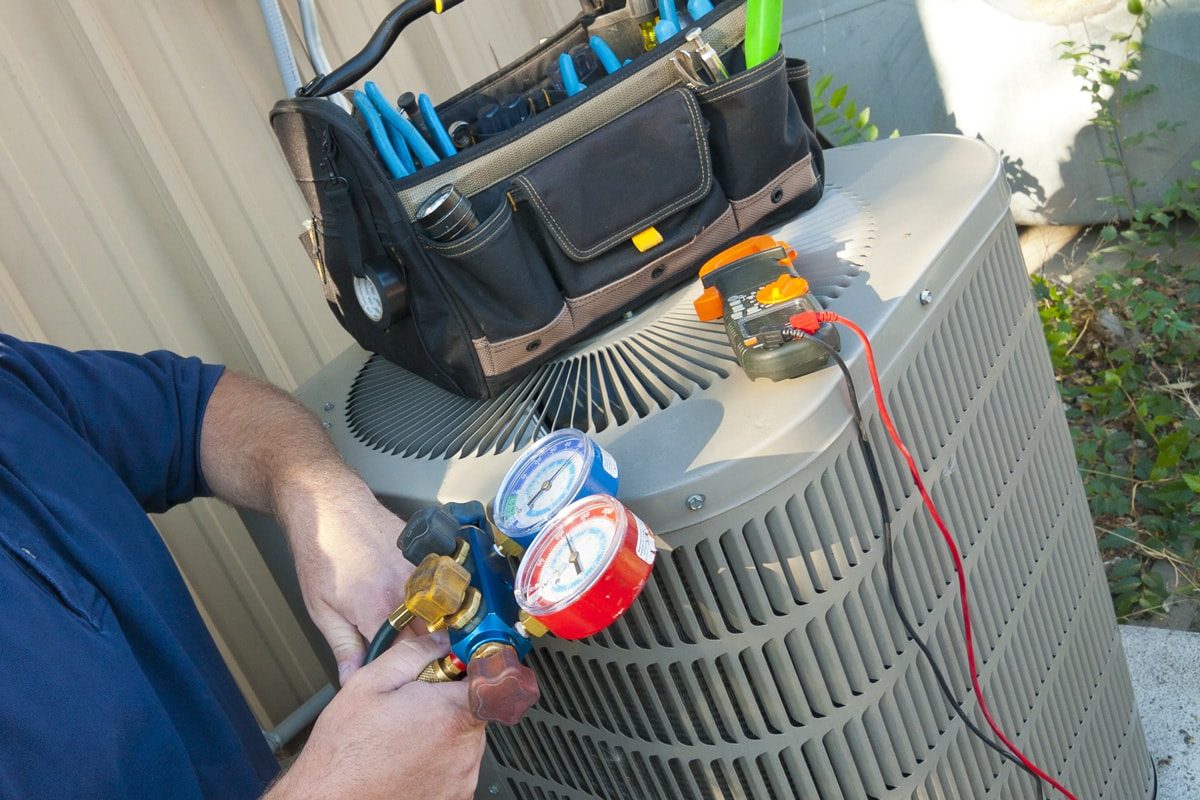
Ductless air conditioners
The ductless air conditioners cool and deliver air to a specific room or house story.
Like the split system units, the ductless air conditioners will have at least one outdoor and one indoor unit. These units usually connect via a copper refrigerant tubing line.
Split system air conditioners
A split system air conditioner has one indoor and one outdoor unit, which works in tandem to keep the house at the ideal temperature.
Please note that the outdoor unit must be outside the house, and HVAC professionals usually execute the installation.
Packaged air conditioners
They are great options for reducing energy use or when there is limited space for the outdoor unit because it's easy to install them on rooftops.
Portable air conditioners
Portable air conditioners are the most versatile and accessible type of air conditioners available. These do not require access to the outdoors or the home's ductwork to function correctly.
Instead, you can set up the unit as directed in the owner's manual and enjoy the cool air.
Window Air Conditioners
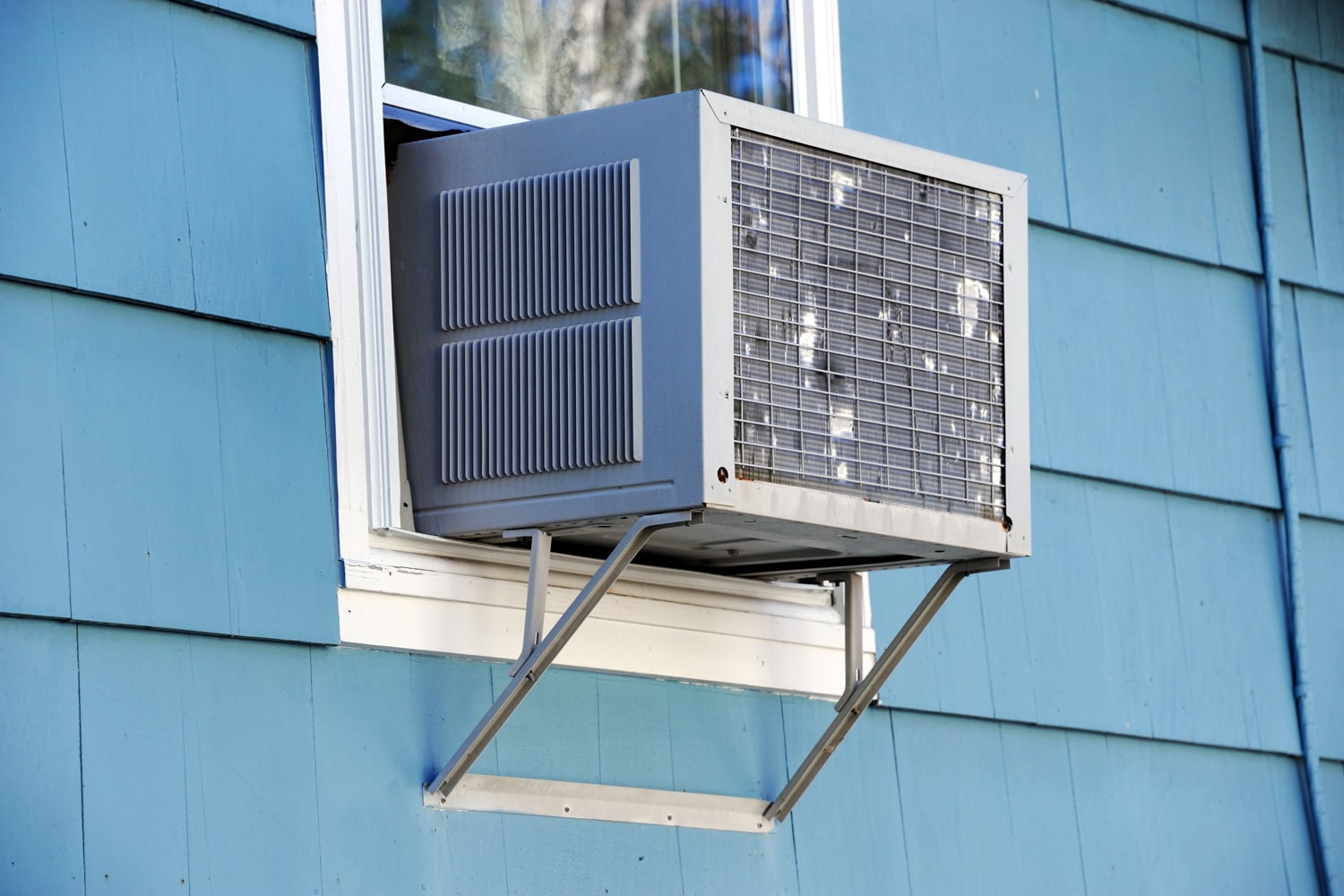
The window air conditioner units are easy to move, and most will keep at least one or two small to medium-sized rooms cool.
Note that window air conditioners MUST be installed/placed in a window to function and vent properly.
Failure to place the unit securely into a window will cause the unit to malfunction.
Why Do Air Conditioners Use Outside Air?
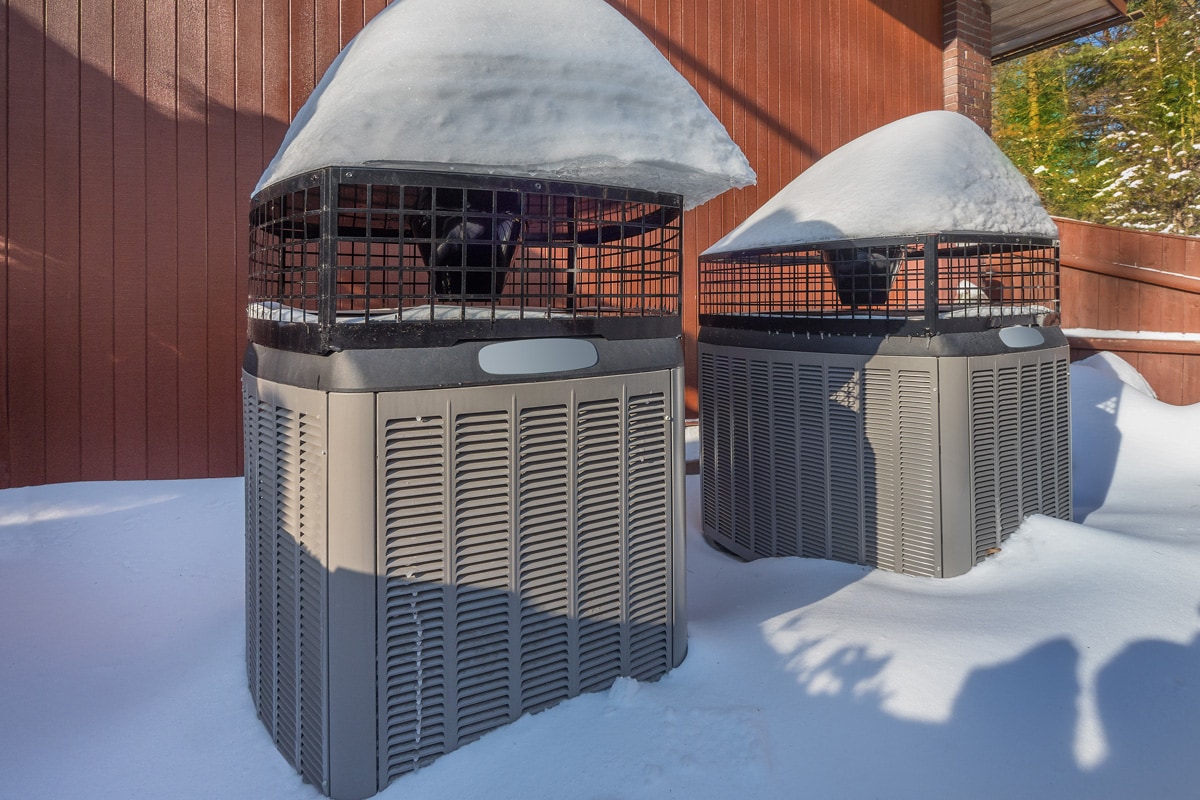
Air conditioners do not use outside air. However, when these systems are running, it might feel like the AC unit disperses cool outside air through the ductwork.
The central air conditioners do not use outside air to cool the home's interior. Instead, the AC unit will remove the humidity and warmth from the indoor air. Then, the air conditioner will release cold-filtered air via the house's duct system.
Suppose the outdoor air is exceptionally smoky or polluted. Running the AC will keep some harmful pollutants out of your house.
Also, most air conditioners have an air filter or two for air purification. These are great for filtering the recirculated indoor air and will reduce airborne germs and pollutants in your house.
Can I Put An Air Conditioner In A Room With No Windows?
Yes. You must purchase a ductless or ventless air conditioning unit to use an air conditioner in a room without windows. These units are easy to set up and don't require traditional ductwork or a window to keep the room cool.
Click here to view the Delonghi portable air conditioner at Amazon.
Are you interested in learning more about ventless air conditioning units? Click here to read What Air Conditioner For A Room Without Windows?
Should My AC Fan Be On Auto Or On For Air Circulation?
The experts at Cold Today states that choosing the fan auto setting is better for the AC system and your energy bills. However, you know your home and your temperature requirements best.
Before you decide to use the auto setting or leave the AC fan on continuously, please read the pros and cons to make an informed choice.
Pros and Cons of the Auto Setting
The Pros: the auto setting is eco and budget-friendly because the fan will only turn on when the air conditioning actively cools the house.
Once the set temperature on the thermostat is reached, the fan will shut off until it is time to start circulating the cool air again.
The Cons: the indoor air won't be as clean because the fan will only be circulating air through the home when the AC works to lower the house's temperature.
Suppose you or your loved ones have respiratory issues. This is not the best setting to improve your home's air quality.
Pros and Cons of the 'On' Setting
The Pros: leaving the fan on continuously will constantly move the air and force it through the AC unit's air filtration. This is a good option for added indoor air purification for those with respiratory issues.
Many who suffer from allergies and asthma will need the AC fan continually during the summer months to reduce the pollen and pollutants in the air that trigger respiratory attacks.
The Cons: suppose you leave the fan on continuously. Your energy bills will be significantly higher from the fans' constant energy usage.
Also, the AC unit will need repairs and filter changes more frequently because the fan is never idle, which will cause the fan and other components of the central air conditioning unit to wear down much quicker than with the auto fan setting.
Another common issue is that the AC will remove less humidity from the indoor air.
Because the fan is constantly funneling the air through the ducts and the air conditioning unit, the water from the moisture in the air does not get time to evaporate between cooling cycles, which will increase the humidity in the house significantly.
Moreover, the risk of mold growth increases with high indoor humidity levels. Mold growth in residential settings can harm homeowners' or tenants' overall health.
Food For Thought
Hence, it is imperative to remember that you could change the air conditioner's fan setting. Based on the seasonal weather and temperature needs of your household.
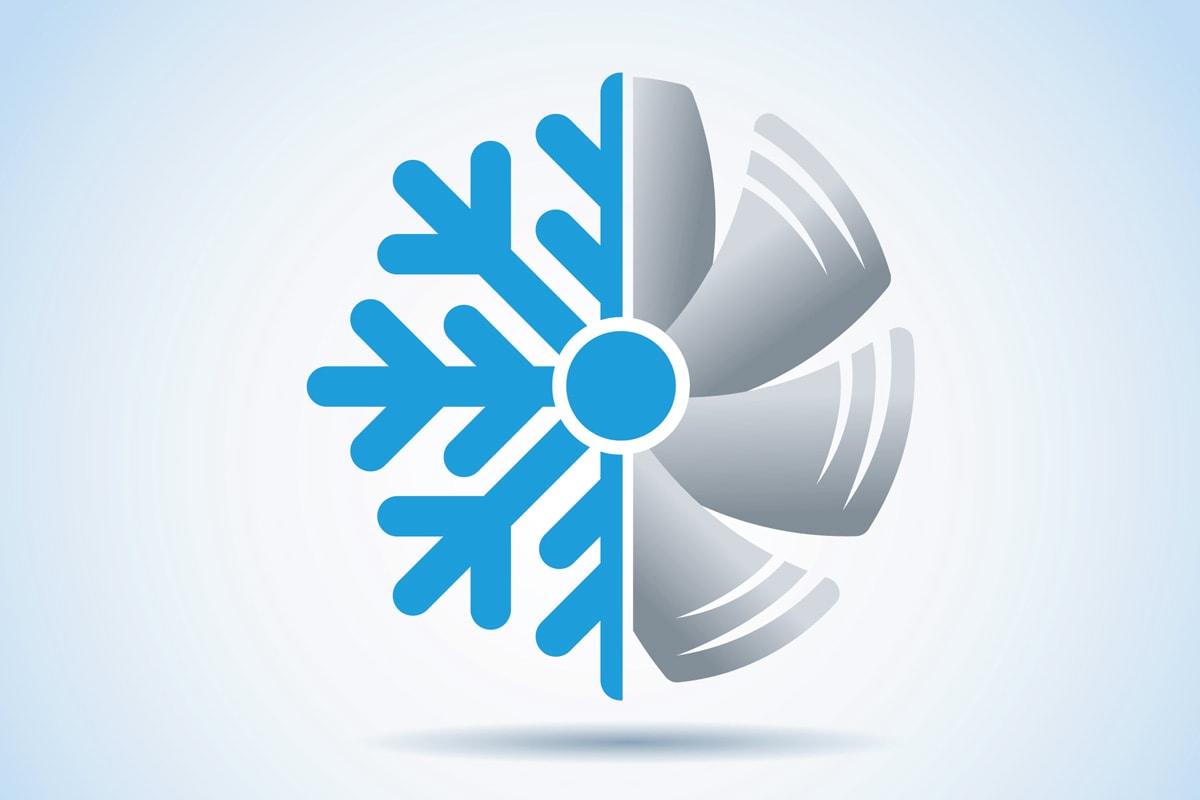
Every month during the warmer seasons is somewhat different because of the varying ranges of air quality levels, humidity, and temperatures.
Adjusting your AC fan setting to the current weather could be your best bet for maintaining a fantastic home.
We Are Wrapping Up!
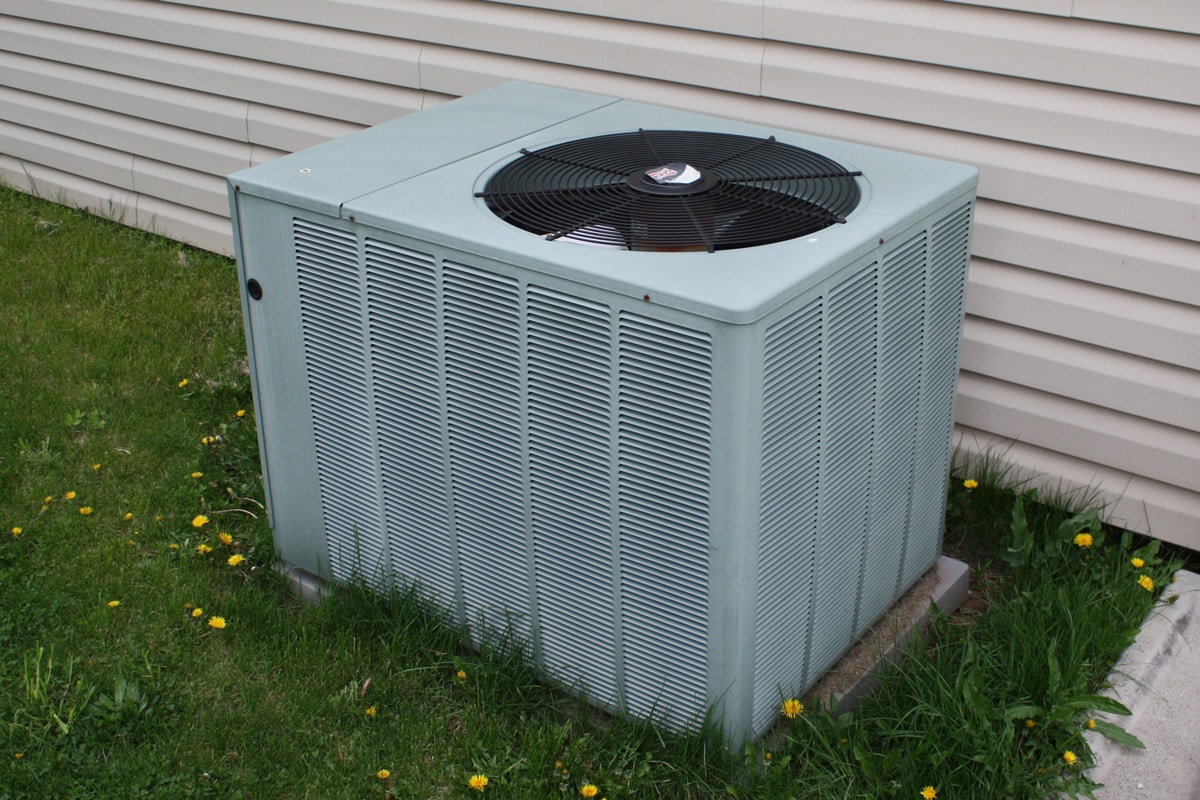
Thank you very much for reading our article!
Today, we discussed why certain air conditioners must be outdoors and the benefits of using portable air conditioning units inside windowless rooms.
The team at HVACseer sincerely hopes this article was helpful to you in learning more about air conditioners and how they work.
Please be sure to check out some of our other posts before you go to help further your knowledge of air conditioning units!
How To Release Freon From Car Air Conditioner
Air Conditioner Only Works When Car Is Moving – What’s Wrong?


